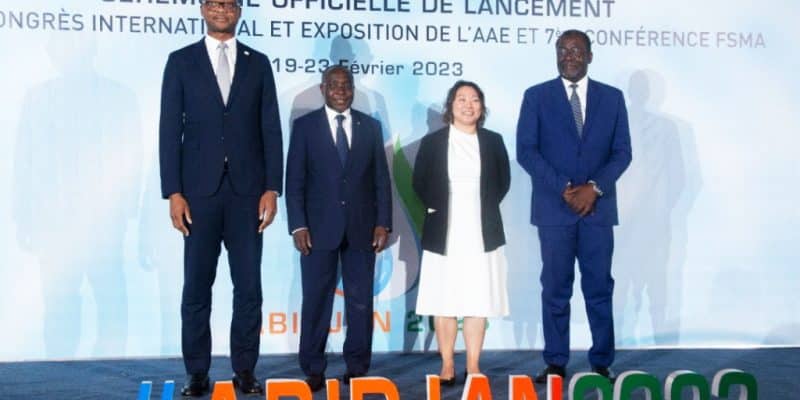With the theme "Acting for the sustainable management of resources and access to water and sanitation for all", the 7th International Conference on Faecal Sludge Management held from 19 to 23 February 2023 in Ivory Coast was an opportunity for actors from the film industry and various sectors to rethink clean and attractive cities to accelerate sustainable development on the continent.
Silence, it’s spinning. With this expression, exclusive to the world of cinema, an audience of local elected officials, students and entrepreneurs enjoyed watching nine documentaries on the challenges of sanitation in African cities. This was on the occasion of the 7th International Conference of the Foul Sludge Management Alliance (FSMA) which closed on 23 February 2023 in Abidjan, Ivory Coast.
The short films made by the non-governmental organisation (NGO) Niyel tell the story of flooding and insalubrity that hinder attractiveness in urban areas, particularly in Gabon, Madagascar, Togo and Senegal, where the ten filmmakers come from. “We advocate and promote the development of inclusive sanitation approaches, in particular fecal sludge management and sewerless sanitation to ensure human health and dignity, as well as the preservation of urban ecosystems,” says FSMA, based in Rotterdam, the Netherlands.
The event which saw the participation of the African Development Bank (AfDB) enabled the Abidjan-based financial institution to discuss with 2,000 social and economic actors the urgency of redefining local government planning for sanitation, as well as the role of the private sector in achieving the United Nations Sustainable Development Goal 6 (SDG6) on universal access to water and sanitation by 2030.
Improving urban sanitation
Africa is still lagging behind on this issue, but several initiatives are in the pipeline in some countries, notably Senegal, where the rate of access to sanitation is currently 56%. In June 2022, the Senegalese government signed two agreements worth a total of 40 billion CFA francs (more than 60 million euros) with the West African Development Bank (BOAD) to improve sanitation in the cities of Dakar, Kaolack, Louga, Matam, Pikine, Rufisque, Tambacounda, Saint Louis, Tivaouane and Touba. Read also-MALI: $250 million from the World Bank for drinking water and sanitation in Bamako
This funding will enable the installation of wastewater collection and treatment systems including five wastewater treatment plants, five sludge treatment plants, 28 pumping stations, and 335,349 linear metres of sewer network. Similar infrastructure will be built in the Greater Lomé area of Togo as part of the National Strategy for Universal Access to Safe Drinking Water and Sanitation that the Togolese authorities recently launched. The project is financed to the tune of 243.4 billion CFA francs (370 million euros) by the African Development Bank (AfDB), the French Development Agency (AFD) and the World Bank.
Benoit-Ivan Wansi






